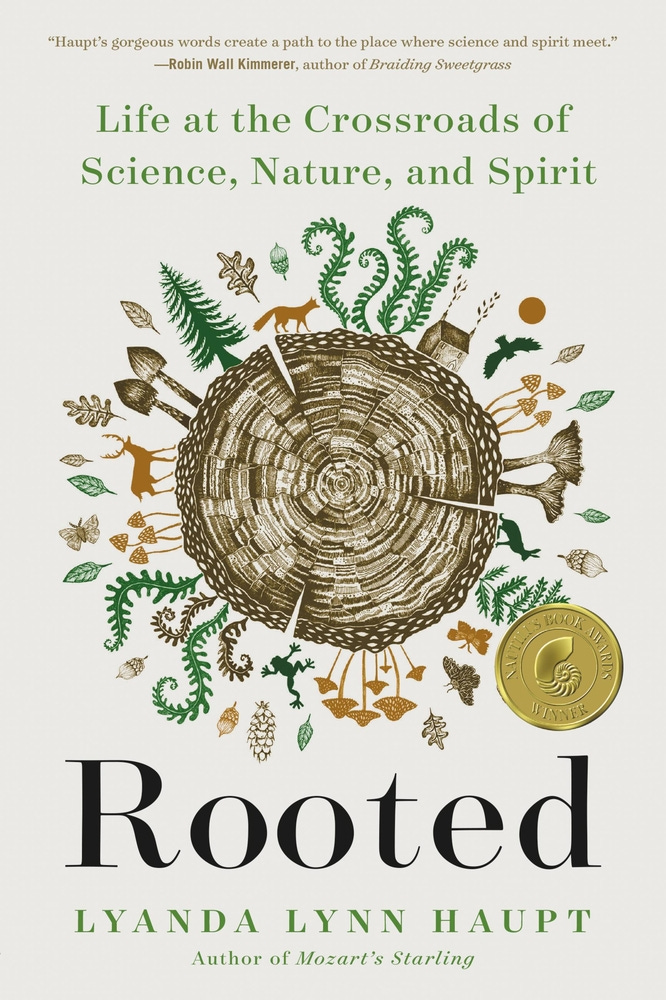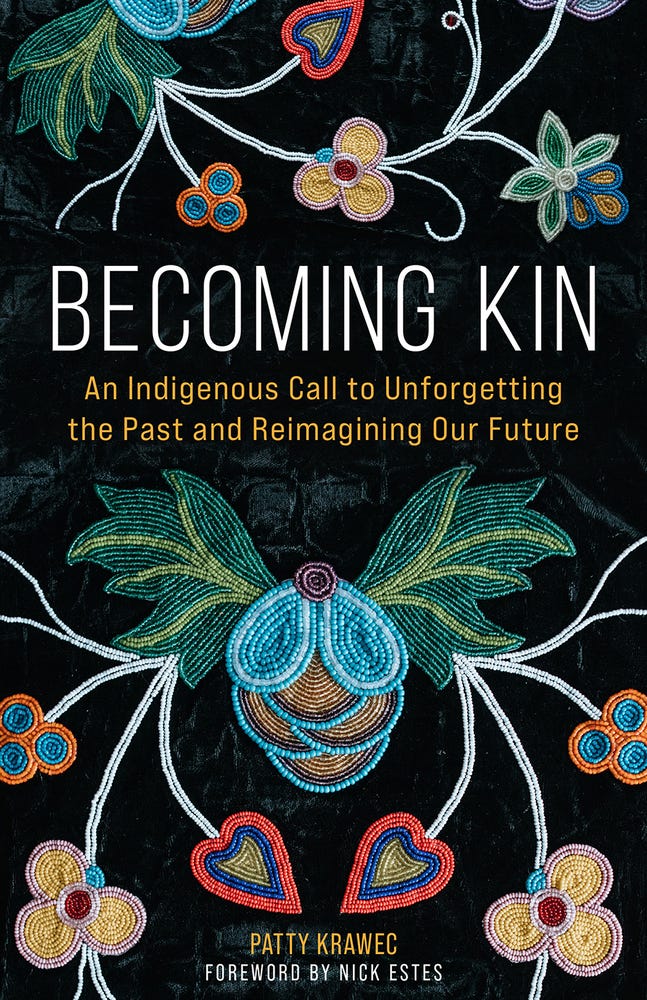How well do you know the square mile you inhabit?
And what does it matter in a time like this, when democracy and America and our world as we know it rapidly spirals out of…well, was it really ever under control, or under the control of anything good? At any rate, it’s spiraling.
As we think about what it means to take care of ourselves and our communities in this season, we might think about what it means to ground ourselves. Figuratively, and literally.
Or maybe sometimes metaphorical and literal grounding are the same thing. To take off our shoes, plant our feet on the ground, and say, here I am. This is what
encourages us to do in her gorgeous book Rooted: Life at the Crossroads of Science, Nature, and Spirit.
Y’all, normally I finish reading a book before daring to quote much from it here. Because you never know. But this one? I’m going to go ahead and quote. (I’ll let you know next time if I’ve changed my mind.)
I guess it makes sense that this book is speaking to me deeply right now, because rootedness—in a way that connects science, nature, and spirit, and doesn’t neglect any of these realms—is exactly what I’m looking for.
Maybe you’re searching for the same.
How do we live, with increasingly dire tidings on the news every day? What are we doing that matters? What could we be doing that matters? Is there peace to be found? Joy? Hope? (Maybe you can tell I go to a church that does Advent. This is, somehow, hope week.)
As always, I’m not here because I think I have answers. But I am here to share what I’m learning.
And what I learned today was kith. You may have heard the phrase “kith and kin,” but do you know what the “kith” part means? I didn’t. I really hadn’t thought about it—or I probably assumed kith and kin were synonyms.
In Rooted, Lyanda Lynn Haupt explains otherwise:
“‘Kithship’ is intimacy with the landscape in which one dwells and is entangled. In modern English—even in England, where the expression originated—‘kith and kin’ are mistakenly conflated into one meaning: our relatives, those who are close to us. But the reason the archaic phrase was formed around two different words is that they are in fact different…Where kin are relations of kind, kith is relationship based on knowledge of place—the close landscape, ‘one’s square mile,’ as [Jay] Griffiths writes, where each tree and neighbor and robin and fox and stone is known, not by map or guide but by heart. Kith is intimacy with a place, its landmarks, its fragrance, the habits of its wildlings. Kithship enlivens kinship.”
How cool is that? The thought of knowing each tree and neighbor and robin and fox and stone. And of kithship and kinship informing and reinforcing and enlivening one another.
I don’t know about you, but the square mile around my home certainly has trees, neighbors, robins, and stones.
(Not sure about the foxes; I’m a little jealous of my husband’s family members who have a den of foxes in their backyard in Pennsylvania. So cool! The closest we have is a coyote that one of our neighbors occasionally sees trotting boldly across his front lawn on his security camera at 2 am. We keep our cat indoors at night.)
Anyhow. Kith and kin.
One of the things I try to do here at Growing Into Kinship is expand our notions—by which I mean, my own notions, as much as anyone’s—as to what and whom kin encompasses. To broaden our sense of who we belong to and who belongs to us.
This includes different sorts of people, and also different sorts of created beings. The “more than human world,” as I’ve seen some indigenous writers call it.
Trees and robins and foxes and coyotes and cats and butterflies and wildflowers are our kin. This is a vision I’ve learned from indigenous thinkers and hope to embrace.
At the same time, it strikes me as helpful to also have a separate, unique word—that’s the kith, apparently—to speak of our relationship with land. Maybe especially because, for many of us, it might not come naturally to think of the more than human world as our kin.
Just as surely as we belong to one another in human communities, we belong to the natural landscapes we live in. We belong to rivers and soils and ferns and mosses. We belong to Earth.
As Haupt writes, “Our bodies, our thoughts, our minds, our spirits are affected by the whole of the earthen community, and affect this whole in return. This is both a mystical sensibility and a scientific fact.”
Or, as Anishinaabe writer
puts it in Becoming Kin: An Indigenous Call to Unforgetting the Past and Reimagining Our Future, “I want us to consider our relationship with land—to think about it beyond squabbling over ownership and rights and to think about responsibilities and reciprocal relationship. To think of ourselves as a part of creation rather than apart from it.”This is deep stuff. This is how we turn toward what Krawec calls “the process of rebuilding” when so much has fallen apart and continues to fall apart. “We turn,” she writes, “to the work of becoming kin to the land and each other, understanding our responsibilities.”
How’s your relationship with your kith these days—with your square mile, and all who make their home there?
I don’t know about you, but between the election disaster, and all the news since—and then traveling for a week for Thanksgiving, and then coming home with a weird bug and feeling exhausted all week, and then taking in more terrifying news—I haven’t been taking much time to wander, to walk, to be attentive to my square mile.
I fully believe in the deep interconnectedness Haupt and Krawec write about, and I want to be aware of it. I want what Haupt describes as “an awareness that makes us tingle with its responsibility, its beauty, its poetry.” One that “means everything we do matters, and matters wondrously.”
This is what I hope for—for me and for you and for all of our communities—this Advent season and beyond. However hard things get.
Feet on ground. Knowing and caring for our kith. Knowing and caring for our kin. Together.





I love this idea of knowing 1 sq mile so well, though that is a ton of people in my case 😁
So good. Rooted was one of my favorite reads this year, and definitely adding Becoming Kin to my TBR!